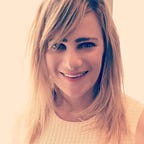How To Swim With The Sharks When Mark Cuban Is Your Mentor
Teen maker takes on the quarter trillion dollar beauty industry to save the planet and finds that even with the best backing, startup life is all about the hustle
At just 14 years old, Ben Stern ideated NOHBO Drops, a single use zero-waste plant-based wrapper that melts in water and dispenses a precise amount of shampoo, conditioner, body wash or shaving cream concentrate without wasteful packaging.
Five years later, he’s taking on the quarter trillion dollar beauty industry with the backing and mentorship of billionaire investor, Mark Cuban, and the goal of eliminating the half-billion personal care bottles that end up in landfill.
His maker’s journey is an impressive one with valuable lessons for aspiring social entrepreneurs.
A tinkerer from an early age, he spent his childhood prototyping imaginative inventions with his mom and watching Shark Tank with his dad and grandmother. The idea for NOHBO, which stands for no hair bottles, came to him after watching a documentary in the 9th grade in which he learned that it takes a thousand years for plastic bottles to degrade.
“I went home, took a shower, and noticed there was no recycling bin in the bathroom,” he said explaining that most unrecycled plastic comes from bathrooms where people toss empty bottles into the trash. “Soon after I saw my mom using a laundry pod, and the idea came to me like Eureka!”
Stern found a freelance chemist on elance.com and paid him with shares in the company and money he earned at a part-time job. Together they worked on developing the drops and once they had a viable product, Stern began cold-calling potential customers like Hyatt Hotels and Clorox, and networking with influencers like the Tisch family who helped him secure NFL player endorsements for a crowdfunding campaign. He landed a coveted spot on Shark Tank as one of 180 contestants from a pool of 69,000 applications, and in Season 7, Episode 18, Mark Cuban wound up taking a 25% stake for $100,000.
“Mark Cuban has been an amazing partner and is still very involved. He just gave us another early tier funding bump. I talk with him every week and speak with his team of advisors daily. I’ve never seen anyone more responsive to emails,” said Stern.
“NOHBO is a technologically advanced product that has the capacity to change multiple industries. Our number one focus is to team up with large hotel distributors. Hotels are a huge source of waste. They order billions of amenity bottles a year and pay around $0.25 per shampoo bottle which comprises up to 85% water. The biggest thing in the cosmetics industry right now is creating anhydrous, or water-free products. Disney has pledged to give up 80% of single-use plastic, Marriott as well. Hotels can meet their zero waste goals with NOHBO while cutting costs and providing guests with a novel and clean amenity offering.”
“We’ve just begun taking pre-orders for a limited run for this winter. The goal is to collect data and produce a case study that will show potential partners that the drops are feasible in this market. Our goal is to spread NOHBO through retail with large cosmetic companies like Loreal and Dove so that we can be in every Walgreens and CVS in the world. That’s where we’re going to make the biggest difference.”
As for market adoption, Stern referenced the trajectory of laundry detergent pods which were introduced in 2012 and became 15% of a $7 billion market by 2016, according to Fortune.
I asked him if he considered the patent holders of laundry detergent pods to be potential competitors. He explained, “It’s a different product and application. Laundry detergent pods typically take 3–5 minutes to dissolve. Our product dissolves in seconds.”
Regarding investor interest. he explained that even though the beauty industry is a quarter trillion dollar industry with enormous M&A deal activity, tech continues to dominate with only 6% going to consumer packaged goods and retail, citing a Forbes reference to a 2014 PwC MoneyTree Report.
“It’s never easy getting money and it’s always easy to burn it. I’ve been able to make 3-month budgets last 8.5 months, but I never short R&D. The chemists we hire have very valuable supplier relationships that provide free samples of innovative raw materials that have made all the difference.” He also found that automation does not necessarily save money on human labor. Referencing an Elon Musk tweet, he said, “Never underestimate the power of humans, they are actually needed. At certain levels of scale, simplicity is bliss. Sometimes it’s better to just have someone physically screw on a cap instead of paying $40–50,000 for a machine that will break down in 2 years.”
Lastly, we talked about the 24/7 life of an entrepreneur. What it’s like to be on the line with the team making deadlines and investor goals while still a teenager, and if he felt that he was missing out on the social experience of college having taken an unofficial gap year. He replied, “There is a huge young entrepreneurship community that I’m involved with. We go to Forbes 30 Under 30 events together and the Next Gen Summit which are very social and keep me plugged in. I also speak frequently to university groups including MIT and Yale. As for college, I do value my education and one day I will go, but for now, my priority is to get us to the market. A lot of people are counting on me.”
